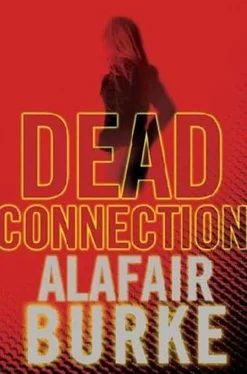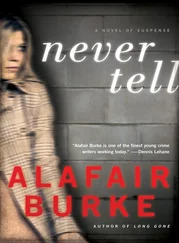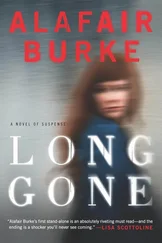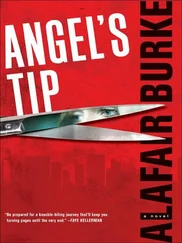“Meaning, if you’re not paying.”
“Right. If you’re not paying, you can still log in to your account, but you can’t contact anyone.”
“And other people can’t find you or contact you.”
“Exactly. But that’s fine for our purposes.” Ellie clicked on the link to new2ny’s connections. Hunter had more messages than Amy Davis had accumulated in three weeks, just under this one user name. Depending on the extent of Caroline Hunter’s online activities under her other profiles, they could be looking at several hours of work. Less than half an hour remained in her shift, but Ellie knew her borderline OCD wouldn’t allow her to stop sifting through the messages until she was done. If she got paid for all the free overtime she’d donated to the NYPD in her five years as a cop, she might actually have a savings account.
“We’ll have a list by tomorrow.”
“I’ll call my A.D.A. buddy and give him a heads-up. Late morning?”
“Sure.”
When McIlroy left to make the call on his cell, Ellie didn’t bother asking where he was heading. By her count, it was McIlroy’s third trip to check on Chowhound in the men’s locker room since they returned from Amy’s apartment. The previous visits had been brief, but this time, he didn’t return for nearly twenty minutes.
“We’ve got a fuller morning than we thought,” he announced. “My guy’s willing to help us out, but first we’ve got to do a drop by at FirstDate.”
“Did you tell him we already tried?”
“Yeah, but he wants us to go through the drill in person. Tell them we really mean it about the court order. I called the corporate filings office and finally tracked down an address near Battery Park. Maybe they’ll cave when they see our smiling faces.” He removed his coat from the back of his chair and pulled it on. “I’m heading home. I suggest you do the same.”
Ellie assured him she’d be close behind, but for three additional hours, she remained glued to the computer screen, reading every last message in every last one of Caroline Hunter’s accounts.
Not a single name overlapped. No one person had contacted both Caroline Hunter and Amy Davis, at least not using the same profile name. Maybe her lieutenant had good reason for his concerns. Maybe McIlroy was seeing shadows. Two women dead, both among thousands of other women on FirstDate. Maybe there was no connection between their murders.
She found herself fiddling with the pen she held between her index and middle fingers. She’d been telling herself that quitting was easy – a self-imposed contract to go cold turkey, the only way to go – but all that energy in her right hand made it clear she was still craving a smoke.
She was about to shut down the computer when she took a closer look at the e-mail message on the screen. It was sent to Caroline Hunter, posing as a thirty-two-year-old pediatric resident who went by the handle BrooklynHeidi, by Chef4U, who – according to his profile – was a thirty-eight-year-old who lived on the Upper East Side and would love nothing more than to cook a Julia Child recipe for his perfect date. Ellie took in Chef4U’s photograph, thinking that it would be nice to go home to a man with moppish blond hair, bright blue eyes, and a pot of beef bourguignon. For now, though, all she had to go home to was an empty apartment.
She picked up the thick binder of notes that Caroline Hunter’s mother had sent to Flann and began reading. Interspersed among summaries of dates, quotations from various e-mails, and draft chapter outlines, Ellie found random notes jotted in the margins – Caroline’s miscellaneous reminders to herself about hair appointments, phone calls, and grocery lists.
From what Ellie could piece together, the book was shaping up to be less about the men Caroline met online than about her own self-discovery. By creating different personalities on the Internet, she experienced a kind of independence she’d never felt before. At the same time, these desperate, fleeting encounters with men who shared no common social connection made her feel profoundly alone in the world.
Having read Caroline’s scribbled words, Ellie somehow felt lonelier as well. Caroline Hunter was smart, reflective, and had something original and provocative to say. She should still be alive. Ellie closed the notebook and finally resolved to go home.
THAT EVENING, IN A WOOD-FRAMED RANCH HOUSE IN WICHITA,Kansas, Roberta Hatcher was doing exactly what she did every night. She was watching her shows on a console television set and pouring herself a vodka on the rocks from the bottle of Smirnoff that rested on the tray table next to her reclining chair.
When she married Jerry Hatcher thirty-five years ago, she never expected to be a widow. No one ever thinks about those possibilities when they are young. Even if she had considered the fact that one of them would have to go first, and the statistical likelihood that it would be Jerry, she certainly never would have anticipated that she’d be left a widow so early, with a daughter just starting high school and a son who barely managed to finish.
It had been more than fifteen years since her husband died. That’s how she always worded it: Jerry had simply died. The newspapers and the police department said Jerry shot himself. That was the official account, so of course that’s what they said.
Ellie, however, always made sure that her father was the object of the sentence, not the subject. At first, Ellie insisted on saying that her father “was murdered.” Over time, though, even Ellie tired of the reaction those words triggered – looks of sympathy for a fatherless girl of questionable mental health. Over time, Ellie adopted a tamer version of her father’s death. He “was killed,” she usually said.
Last year, when the national news briefly cared about the long-delayed capture of the College Hill Strangler, Ellie had hauled out the M-word again. I truly believe my father was murdered by William Summer . She repeated that same sentence to whatever reporters would listen. She willingly played the role she’d come to despise at the age of fourteen – the haunted fatherless child. She even spun the story of a young female cop following in her father’s footsteps, as if he had encouraged her in that direction. As if it weren’t his son that traditional, conventional Jerry had always pushed to be a cop. As if Jerry had even noticed his little daughter desperately offering her own theories about the killer named for his preferred stalking territory in the otherwise quiet College Hill neighborhood south of WSU.
Ellie didn’t care whether the papers got her story right. She only cared about one truth. Ellie swallowed her pride, played the game, and did everything she could to get the news, the city, the police department – anyone – to take another look at Jerry’s death.
At the time, she insisted that she was doing all of this for herself. According to Ellie, she needed to see that son of a bitch William Summer – the man finally connected to the College Hill Strangler pseudonym – take full account for his victims, including Detective Jerry Hatcher. She needed to see her father vindicated.
But Roberta knew there was more to it. Her daughter rarely did anything for herself, and this campaign to declare her father’s death another College Hill murder was no different. Ellie was doing it for her family. That is what Ellie had done for nearly as long as Roberta could remember – taken care of her and Jess.
Ellie knew that, more than ever, Roberta could use that money from Jerry’s life insurance and pension, long ago denied to her. Suicides, Roberta had been informed, were not in the line of duty. And death by suicide was what they called it.
Читать дальше












